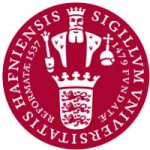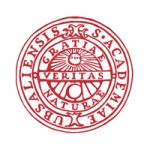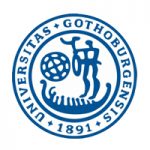项目介绍
We invite applications for a PhD Fellowship in Ancient Pollen DNA commencing 1 September 2024 or as soon as possible thereafter. The position will be based at the Globe Institute, University of Copenhagen. Information on the department can be found at: www.globe.ku.dk
Our research
The successful candidate will join the Conservation Palaeogenetics & Palaeoecology Group at the Center for GeoGenetics led by Assistant Professor Ana Prohaska. We work at the interface of palaeoecology, ancient genetics, evolutionary biology, and conservation science to understand how species and ecosystems responded to past environmental change and how this understanding can inform conservation decision-making today. Our focus is on identifying and, where possible, recovering genetic diversity relevant to preserving Earth’s contemporary biodiversity into the future. For more information about the group and our research, please see: globe.ku.dk/research/geogenetics/prohaska-group.
You will also be part of the newly established Centre for Ancient Environmental Genomics. This is an interdisciplinary research centre committed to unlocking the vast, yet largely untapped research potential of ancient environmental genomics by enhancing key experimental and computational capabilities. The goal is to study community-wide and population-level processes on an unprecedented temporal and spatial scale to help resolve fundamental questions about the history of life on Earth. The centre brings together a diverse team of researchers with backgrounds in geology, genetics, ecology, evolutionary biology, computer science, statistics, and more.
Project description
The successful candidate will be part of an exciting new initiative under the new Centre of Excellence to advance recovery and analysis of ancient pollen DNA using state-of-the-art single-cell sequencing technologies.
Ancient DNA (aDNA) preserved in macrofossils has emerged as a powerful proxy for studying past human, animal, and plant populations over the last million years. In contrast, the potential of pollen DNA for reconstructing past population dynamics of plant species has been poorly explored to date. Yet DNA from pollen grains is a highly promising approach for reconstructing ancient plant populations because i) it offers the possibility of retrieving a large number of individual plant genomes in parallel, ii) the number of pollen grains of a particular species is strongly linked to its relative population size, and iii) fossil pollen is prevalent in most depositional environments around the world.
The main aim of this project is to develop a hight-throughput method for reconstructing past plant population dynamics, which will be universal in its applicability to thousands of plant species worldwide. The method will leverage single-cell sequencing technologies to pioneer high-throughput DNA sequencing of individual fossil pollen grains, delivering population-level genetic information for many plant species simultaneously.
The selected candidate will spearhead the development of wetlab protocols for high-throughput sequencing of single pollen DNA and their application to fossil pollen records from a variety of depositional settings. While a significant amount of material has already been collected, the role also offers opportunities for further field collections from additional lake and permafrost sites.
In addition to the main project tasks, the role provides avenues for the successful applicant to contribute to other ongoing projects within the group.
Principal supervisor: Associate Professor Karina K. Sand, Globe Institute, Section for Genetics
Co-advisors: Assistant Professor Ana Prohaska, Globe Institute, Section for Genetics and Associated Professor Martin Sikora, Globe Institute, Section for Genetics
Start: 1 September 2024
Duration: 3 years as a PhD fellow
Job description
Your key tasks as a PhD fellow at SUND are:
- Carrying through an independent research project under supervision.
- Completing PhD courses or other equivalent education corresponding to approximately 30 ECTS points.
- Participating in active research environments including a stay at another research team.
- Obtaining experience with teaching or other types of dissemination related to your PhD project.
- Teaching and disseminating your knowledge.
- Writing a PhD thesis on the grounds of your project.
Essential qualifications and skills
- Master’s degree in molecular biology, (geo)chemistry, (paleo)ecology, genetics, evolutionary biology, or a related field. Please note that your master’s degree must be equivalent to a Danish master’s degree.
- Documented experience in molecular biology methods or biochemistry techniques.
- A strong interest in developing and advancing wet lab methodologies.
- Excellent written and oral communication skills.
- Experience with statistical data processing and analysis.
- Ambition and drive, strong work ethics, and good interpersonal skills.
- Ability to organise time and work effectively and responsibly, independently and in teams.
- Enthusiasm to be part of an interdisciplinary research project and work collaboratively with scientists across a wide range of disciplines.
- Fluency in both written and spoken English (due to the institute’s international profile).
Desirable experience and skills
- Knowledge of ancient DNA laboratory techniques.
- Proficiency in programming languages, e.g. C/C++, Python, and R.
- Experience with production and/or analysis of (ancient) genetic data.
Place of employment
The place of work is at the Center for GeoGenetics, Globe Institute, University of Copenhagen. We offer supportive, creative, and stimulating working conditions within a dynamic and international research environment. Our research facilities include a LEAF GOLD certified molecular lab, designed for generating genomic-scale datasets from both modern and ancient specimens, complemented by high-capacity computational servers adept at handling such data.
The Globe Institute is committed to creating an inclusive and diverse environment where employees and students can belong and thrive (https://globe.ku.dk/about/diversity-programme/). All qualified applicants will receive full consideration. Candidates who, through their research, teaching, and/or service, contribute to diversity and competencies of our Institute are encouraged to apply.
The University of Copenhagen strives to offer a family friendly and flexible working environment with a sustainable balance between work- and private life, including parental leave schemes (up to 47 weeks for both parents) and up to six weeks of paid holidays per year. Researchers that have not been tax liable in Denmark for the last 10 years can apply for a special (reduced) tax scheme. The university offers a variety of services for international researchers and accompanying families.
Terms of employment
The average weekly working hours are 37 hours per week.
The position is a fixed-term position limited to a period of 3 years. The starting date is 1 September 2024.
The employment is conditioned upon the applicant’s successful enrolment as a PhD student at the Graduate School at the Faculty of Health and Medical Sciences, University of Copenhagen. This requires submission and acceptance of an application for the specific project formulated by the applicant.
The PhD study must be completed in accordance with The Ministerial Order on the PhD programme (2013) and the Faculty’s rules on achieving the degree.
Salary, pension and terms of employment are in accordance with the agreement between the Ministry of Taxation and The Danish Confederation of Professional Associations on Academics in the State. Depending on seniority, the monthly salary starts at 28,448 DKK/approximately 3,825 EUR (October 2022 level) plus pension.
Questions
For specific information about the PhD fellowship, please contact the principal supervisor.
General information about PhD studies at the Faculty of Health and Medical Sciences is available at the Graduate School’s website: https://healthsciences.ku.dk/phd/guidelines/
Application procedure
Your application must be submitted electronically by clicking ‘Apply now’ below. The application must include the following documents in PDF format:
1. Motivated letter of application (max. one page)
2. CV incl. education, experience, language skills and other skills relevant for the position
3. Certified copy of original Master of Science diploma and transcript of records in the original language, including an authorized English translation if issued in other language than English or Danish. If not completed, a certified/signed copy of a recent transcript of records or a written statement from the institution or supervisor is accepted. As a prerequisite for a PhD fellowship employment, your master’s degree must be equivalent to a Danish master’s degree. We encourage you to read more in the assessment database: https://ufm.dk/en/education/recognition-and-transparency/find-assessments/assessment-database. Please note that we might ask you to obtain an assessment of your education performed by the Ministry of Higher Education and Science
4. Publication list (if possible)
Application deadline: 1 May 2024, 23.59pm CET.
We reserve the right not to consider material received after the deadline, and not to consider applications that do not live up to the abovementioned requirements.
The further process
After the expiry of the deadline for applications, the authorized recruitment manager selects applicants for assessment on the advice of the hiring committee. All applicants are then immediately notified whether their application has been passed for assessment by an unbiased assessor.
The assessor makes a non-prioritized assessment of the academic qualifications and experience with respect to the above-mentioned area of research, techniques, skills and other requirements listed in the advertisement.
Once the assessment work has been completed each applicant has the opportunity to comment on the part of the assessment that relates to the applicant him/herself.
You find information about the recruitment process at: http://employment.ku.dk/faculty/recruitment-process/
The applicants will be assessed according to the Ministerial Order no. 242 of 13 March 2012 on the Appointment of Academic Staff at Universities.
The University of Copenhagen wish to reflect the diversity of society and encourage all qualified candidates to apply regardless of personal background. Part of the International Alliance of Research Universities (IARU), and among Europe’s top-ranking universities, the University of Copenhagen promotes research and teaching of the highest international standard. Rich in tradition and modern in outlook, the University gives students and staff the opportunity to cultivate their talent in an ambitious and informal environment. An effective organisation – with good working conditions and a collaborative work culture – creates the ideal framework for a successful academic career.
联系方式
电话: +45 35 32 26 26相关项目推荐
KD博士实时收录全球顶尖院校的博士项目,总有一个项目等着你!





